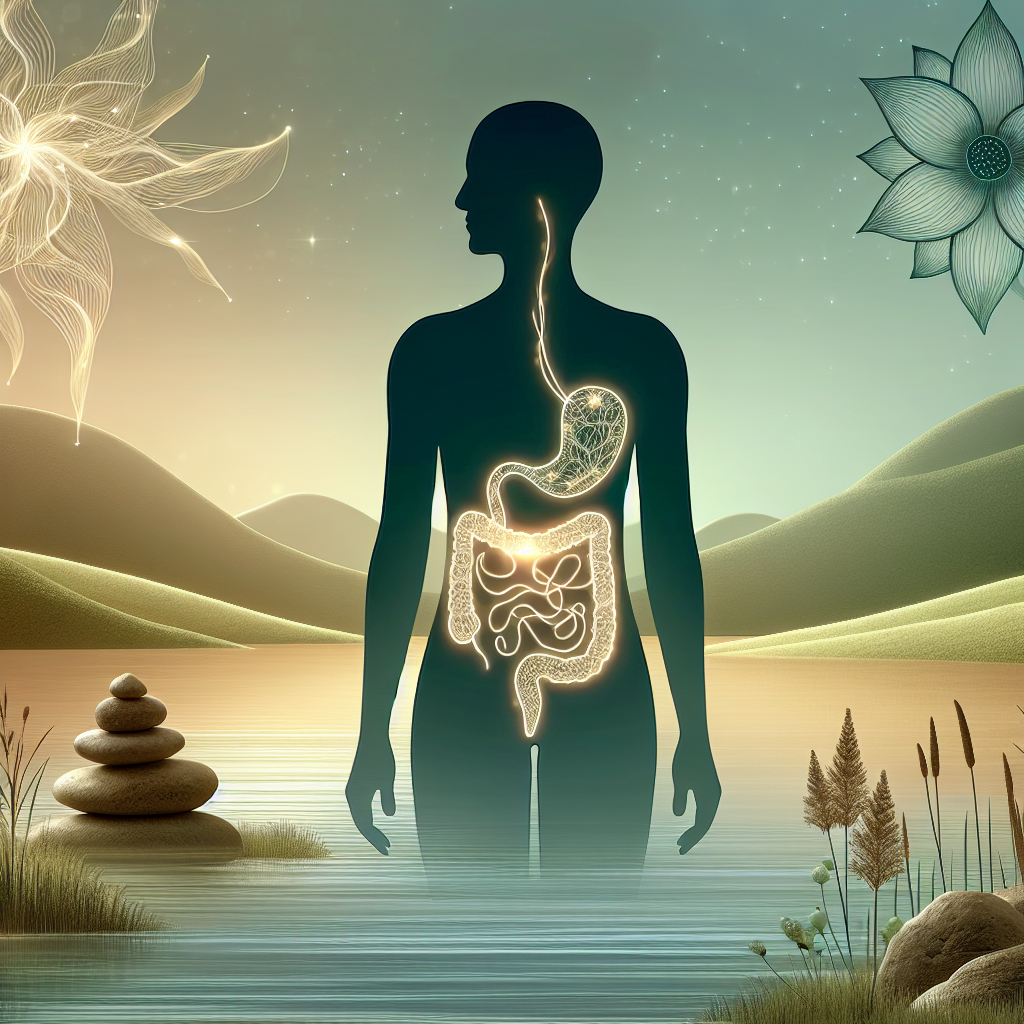### Unraveling the Mystery: The Gut-Brain Connection and Its Impact on Your Well-being
Hello there! Today, we’re diving deep into an intriguing topic that’s gaining significant buzz in the health science research community – the gut-brain connection. You may have heard about it, you may not have, but either way, by the end of this post, you’ll understand why this connection is such a hot topic, and how it can impact overall wellness.
#### The Gut-brain Axis – What is it?
In simple terms, the gut-brain connection refers to the bi-directional communication network between our central nervous system (primarily the brain) and our gastrointestinal tract – commonly known as the gut. They communicate through several pathways involving nerve signals, hormones, and immune system compounds. The information flows both ways – our brain can influence our gut, and our gut can send signals to our brain[^1^].
#### The Gut Microbiome – An Emerging Star
A key player in this communication network is the gut microbiome – the diverse community of trillions of microorganisms (mostly bacteria) living in our intestines[^2^]. It plays essential roles in digestion, immune function, and even produces neurotransmitters – chemicals that help transmit signals in the brain[^3^].
#### The Gut-brain Connection and Mental Health
An exciting area of research is exploring the links between the gut-brain axis and mental health. Studies suggest that changes in the gut microbiome composition can influence our emotional state and behavior, potentially contributing to conditions like depression and anxiety[^4^]. For instance, certain strains of bacteria are found to produce neurotransmitters like serotonin and dopamine – the ‘feel-good’ chemicals of our brain[^5^].
### So, How Can we Nurture Our Gut-Brain Connection?
Given these findings, it’s becoming clear that taking care of our gut health could be a key strategy for promoting mental wellbeing. Here are a few steps you can take toward a healthier gut-brain connection:
– **Maintain a Diverse, Balanced Diet**: A diet rich in fruits, vegetables, whole grains, lean proteins, and fermented foods can promote a diverse and healthy gut microbiome[^6^].
– **Manage Stress**: Chronic stress can harm gut health, further impacting mental well-being. Mind-body practices like yoga, meditation, or regular exercise can help manage stress[^7^].
– **Prioritize Sleep**: Sleep deprivation can interfere with gut health. Prioritize getting a full night’s sleep whenever you can[^8^].
– **Consider Probiotics**: Probiotics are live bacteria and yeasts that can help maintain or restore a healthy gut microbiome. Current data suggests that probiotics could play a role in managing mood and mental health[^9^] but more research is needed in this area.
Embrace the holistic view of health that the gut-brain connection offers. By nourishing our bodies and minds together, we can move towards overall well-being.
> “_In scientific wellness, one doesn’t wait to get ill but prevents illness through the understanding of the disease process itself._” -Leroy Hood
[^1^]: Furness, J.B., 2012. The enteric nervous system and neurogastroenterology. Nature reviews Gastroenterology & hepatology, 9(5), p.286.
[^2^]: Thursby, E. and Juge, N., 2017. Introduction to the human gut microbiota. Biochemical Journal, 474(11), pp.1823-1836.
[^3^]: Yano, J.M., Yu, K., Donaldson, G.P., Shastri, G.G., Ann, P., Ma, L., Nagler, C.R., Ismagilov, R.F., Mazmanian, S.K. and Hsiao, E.Y., 2015. Indigenous bacteria from the gut microbiota regulate host serotonin biosynthesis. Cell, 161(2), pp.264-276.
[^4^]: Foster, J.A., Rinaman, L. and Cryan, J.F., 2017. Stress & the gut-brain axis: Regulation by the microbiome. Neurobiology of stress, 7, p.124.
[^5^]: Cryan, J.F. and Dinan, T.G., 2012. Mind-altering microorganisms: the impact of the gut microbiota on brain and behaviour. Nature reviews neuroscience, 13(10), p.701.
[^6^]: Conlon, M.A. and Bird, A.R., 2014. The impact of diet and lifestyle on gut microbiota and human health. Nutrients, 7(1), pp.17-44.
[^7^]: Kiecolt-Glaser, J.K., 2018. Stress, food, and inflammation: psychoneuroimmunology and nutrition at the cutting edge. Psychosomatic medicine, 72(4), p.365.
[^8^]: Al Khatib, H.K., Harding, S.V., Darzi, J. and Pot, G.K., 2018. The effects of partial sleep deprivation on energy balance: a systematic review and meta-analysis. European journal of clinical nutrition, 72(5), pp.632-646.
[^9^]: Romijn, A.R. and Rucklidge, J.J., 2015. Systematic review of evidence to support the theory of psychobiotics. Nutrition reviews, 73(10), pp.675-693.


